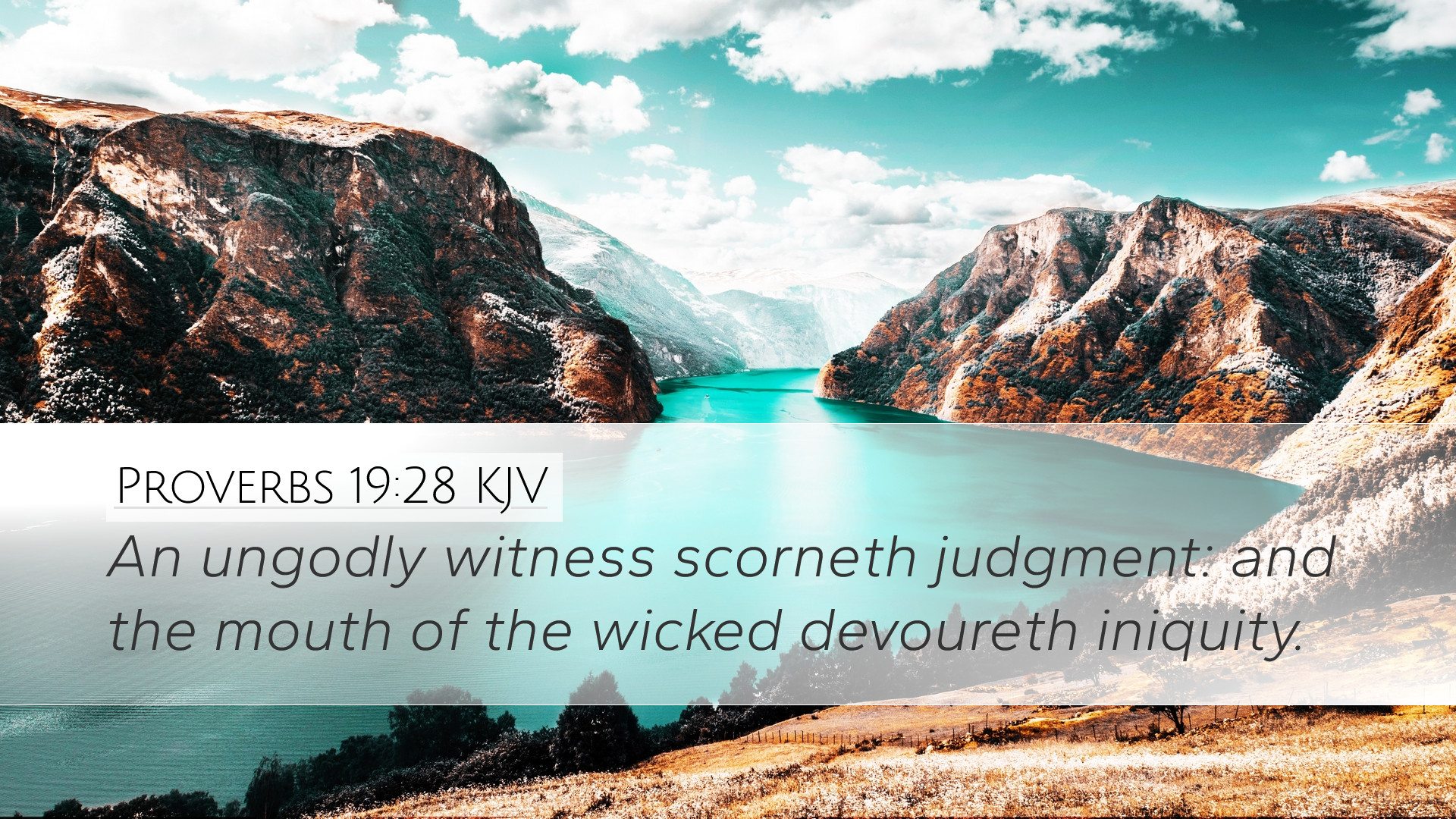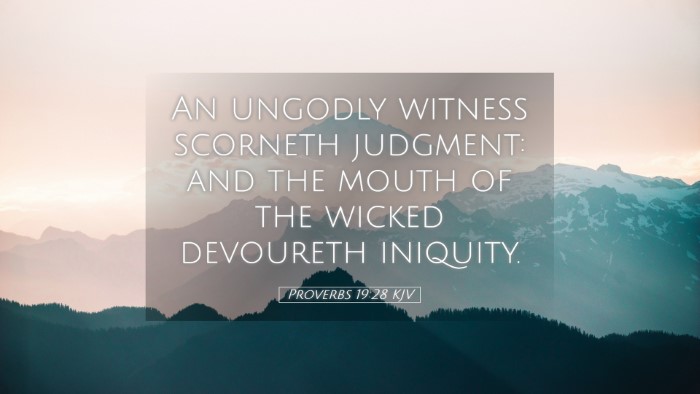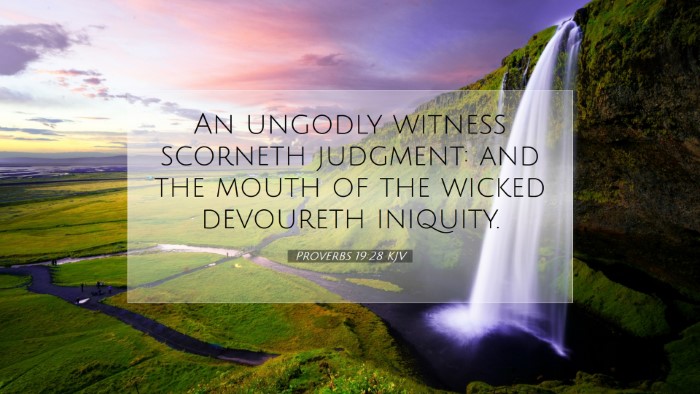Commentary on Proverbs 19:28
Proverbs 19:28 (KJV): “An ungodly witness scorneth judgment: and the mouth of the wicked devoureth iniquity.”
Introduction
The book of Proverbs, traditionally attributed to Solomon, is replete with wisdom and moral guidance. In Proverbs 19:28, we encounter a profound commentary on the nature of justice and the corrupting influence of wickedness. This verse stands as a stark warning against the perils of false witness and the moral decay that comes with it.
Exegesis and Thematic Analysis
This verse is structured around two primary components: the actions of the ungodly witness and the consequences that manifest from such conduct. Each of these components deserves careful consideration.
The Ungodly Witness
Matthew Henry explains that the “ungodly witness” refers to those who bear false witness or speak untruths. They scorn the concept of judgment, seeing it as irrelevant or beneath them. According to Henry, the attitude of the ungodly witnesses is one of derision, largely because they reject divine authority and moral standards.
The Judgment Scorned
Albert Barnes elaborates on the notion of scorn—suggesting that such witnesses do not merely disregard judgment but actively mock it. This scornful attitude poses a significant danger in society, undermining the foundations of justice and leading others astray. Barnes notes that a society where such attitudes prevail risks descending into chaos, where truth and righteousness have no foothold.
The Mouth of the Wicked
Continuing in the verse, the “mouth of the wicked” is a powerful image. Here Adam Clarke draws on the metaphorical significance of the mouth as a tool of both creation and destruction. The mouth, when guided by wickedness, “devours iniquity.” Clarke intensifies this imagery, depicting an insatiable hunger for wrongdoing, emphasizing that such mouths consume lies and foster corruption.
Lectionary Implications
From a pastoral perspective, this verse challenges both congregational leaders and laypeople to reflect on the type of witness they bear. As Matthew Henry posits, we are all witnesses in one form or another, whether to truth or falsehood. In our interactions, especially in community and ecclesiastical settings, it is paramount that the witness we provide aligns with the values of integrity and righteousness.
The Impact on Community
Albert Barnes points out that the ultimate consequence of having ungodly witnesses is detrimental to societal bonds. When individuals in a community act as ungodly witnesses, they erode trust and promote a culture of suspicion and dishonor. Therefore, it is incumbent upon church leaders to foster environments rooted in truthfulness and accountability, serving as models for the community.
Spiritual Reflection
This verse invites introspection regarding our own words and actions. As Adam Clarke notes, it is essential to consider not just what we say but how we represent the truth of the Gospel. Believers are urged to be embodiments of godly witness, allowing truth and love to guide their discourse.
Practical Applications
- Integrity in Leadership: Church leaders must maintain an unwavering commitment to truthfulness, ensuring that their own witness aligns with the teachings of Scripture.
- Encourage Accountability: Promote a culture of accountability within congregations to combat the ease with which gossip and false witness can flourish.
- Teach the Value of Truth: Incorporate teachings on the significance of honest communication in sermons and Bible studies.
Conclusion
Proverbs 19:28 serves as a profound admonition against the reality of ungodly witnesses within society. It highlights the crucial understanding that our words bear weight and have far-reaching implications on community life and justice. By immersing ourselves in the teachings found in this verse, we equip ourselves to stand against the tide of falsehood and advocate for a life governed by the principles of righteousness and truth.
References
- Matthew Henry's Commentary on the Whole Bible
- Albert Barnes' Notes on the Bible
- Adam Clarke's Commentary


